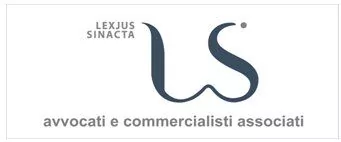Last December 17, the Italian Parliament adopted a new Law N. 221 in order to stimulate economic growth in the country. Among these new measures a new provision, established in Article 38, has been introduced regarding the aviation sector.
The purpose of this Article is to level the playing field for Italian airlines and non-national airlines operating in Italy. Article 38 is designed to have a significant impact on low cost carriers, most notably Ryanair, which has not paid the same taxes as Italian carriers, in particular payroll tax. This is not the first time low cost airlines have come under scrutiny, for example, Ryanair's tax affairs were investigated by the French authorities a few years ago.
The Italian tax authorities have always considered the Irish low cost airline to have a permanent business activity in Italy, which obliges a non-Italian company to pay taxes in Italy. In contrast, Ryanair has always argued that it doesn't have any legal 'connection' to Italy.
To legally strengthen the position of the Italian tax authorities, the Italian Parliament introduced Article 38, which establishes that: In the context of aviation law, the term 'base', shall refer to a set of individual locations and infrastructures used permanently, repeatedly and continuously for air transport services by a business activity, using employees that conduct their professional activities in the aforementioned set of locations and infrastructures, in the sense that they work, supply services and return to their homes after their professional activities have finished.
An air carrier, with a license granted by a member state of the European Union other than Italy, is considered to be established in Italian territory when it carries out an air transport business permanently or continuously or repeatedly, using a 'base' as defined above.
Article 38 represents a detailed clarification which allows the application of a fundamental principle of tax law in Italy regarding the aviation sector: namely, the principle of permanent establishment for all non- Italian companies operating in Italy as defined by national law.
Not so many years ago, after a period of uncertainty regarding the exact legal definition of permanent establishment, the term was clarifiedin accordance with the OECD Model Income Tax Treaty.
Article 162 of Italian Legislative Decree 12 December 2003, N. 344, defines the term 'permanent establishment' as a fixed business premises through which a non-resident company exercises either totally or partially its business in Italian territory.
The precise definition adopted by the Italian legislator introduces not only criteria but also limits so as to allow the Italian government to exercise its authority to collect taxes from non-residential parties which produce income in the Italian territory.
Italian tax law identifies the requisites for declaring that a foreign company has a permanent establishment in Italy. These are as follows:
a) the existence in the State of activities subject to law that involve physical facilities (premises) and employees;
b) the permanence of such facilities, which must be used in a ongoing and not occasional manner;
c) a connection between the facilities and the normal business activities of the company;
d) their productive capacity, meaning their own ability to produce earnings, independently of the activities performed by company outside Italian territory.
Article 38 of Law N. 221/2012 endorses the Italian tax law principles mentioned above and, in addition, clarifies and expands not only tax requirements but also social security and labour law obligations in the aviation sector in keeping with the principles established in the preamble to European Regulation on common rules for the operation of air services in the Community N. 1008/2008: With respect to employees of a Community air carrier operating air services from an operational base outside the territory of the Member State where that Community air carrier has its principal place of business, Member States should ensure the proper application of Community and national social legislation.
The content of this article is intended to provide a general guide to the subject matter. Specialist advice should be sought about your specific circumstances.


